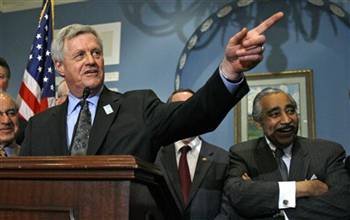… A mouthful of a bill (also known as H.R. 4645) that we’ve discussed before. The bill was introduced in February of this year by the House Agriculture Committee Chairman, Rep. Collin Peterson (Democrat-MN), and it includes a provision to open up travel to Cuba for all Americans.

So four months later, what’s new? On Friday, the House Agriculture Committee announced a business meeting to discuss and vote upon the bill. The vote will be this Wednesday at 2pm Eastern and might, in fact, be available to follow live by audio and/or video on the Committee website, here.
The bill’s proponents are rallying and NAFSA, in particular, has launched an informational and action page called “Cuba is No Exception: Academic Travel Should be a Freedom for Everyone” where supporters can see how to contact lawmakers to express support for the bill, learn more about the restrictions on travel to Cuba and the provisions of the bill, etc. Very helpful.
Mauricio Claver-Carone, a Cuba “hard-liner” on the Board of Directors of the US-Cuba Democracy PAC that we’ve also mentioned before, provides a no doubt convincing (to some) argument against the bill in a piece just launched on the Washington Times website this evening. The driving argument in the article, “‘Sunshine Policy’ toward Cuba?“, can be summed up in the excerpts below:
“… only a decade ago, South Korean politicians and pundits were saying that five decades of political containment and economic isolation had ‘failed’ and should be replaced with a new policy of engagement and reconciliation toward the totalitarian regime of North Korea’s Kim Jong-il. The rest of the world had moved on past the Cold War, they argued, while the Koreas were still trapped in a state of conflict and mistrust…
“Ten years later, the critics have been proved correct. The sunshine policy provided the North Korean regime the wherewithal to become an international nuclear menace while intensifying the brutal oppression of its population.
“Nonetheless, there are U.S. politicians and pundits arguing today that it’s time for the United States to set aside its policy of isolation and containment toward Cuba and the Castro regime and adopt its own sunshine policy of dialogue and engagement.”
The push of the current bill is not to give “sunshine and legitimacy” to the Cuban regime, however, but to open up channels of human contact and trade that benefit both populations. I personally like Anya Landau French’s counterpoint assessment in today’s post in The Havana Note:
“There are plenty of reasons to lift the travel ban now, from ‘why not try something new’ to ‘because this benefits agriculture in my district’ to ‘it’s a way to help the Cuban people.’ But, really, there’s just one reason that matters: ‘because we live in a free country’.”